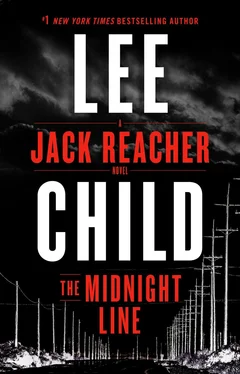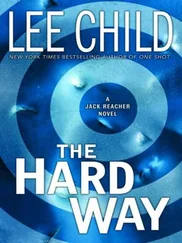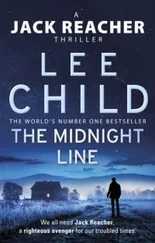He paused again, to eat an egg.
He said, “But we’re winning. I would say we’ve already won, in my region, at least. We can track prescription pain medication from start to finish. We can take out the bent doctors, and we can train the rest to be cautious about how many days they dispense, and we can eliminate pilferage in the factories and along the transportation vectors. So right now the black market is virtually dead, and the medical market is heavily scrutinized. Total success. Except the previous bonanza left us with millions of addicts. Regular folk, remember. They thought a dirty needle in a toilet stall was not their fate. But it’s a free market. When we bit down, the price of pills went up, because of supply and demand. What used to be ten bucks was suddenly fifty. It was a crisis. Suddenly regular cartel powder up from Mexico looked like an irresistible bargain. Remember, deep down it’s the same chemical. These folks are canny shoppers. None of them ever paid sticker for a car. And numbers don’t lie. Even when they factored in the cost to their dignity, with the dirty needles and the toilet stalls and all, hey, the powder was still a bargain. We swapped one problem for another.”
He paused again, to put his silverware together, and push his plate away. He took a long drink from his bottle.
He said, “But overall it was good news for us. We like the new problem better. The regular cartel powder is harder to hide. We can follow it better. From our point of view it was like the system had just swallowed a barium meal. Whole networks lit up like neon. Standards got less precise. Our job got easier. But not everywhere. A certain part of Montana, for instance. Nothing lit up at all. We couldn’t see incoming product. No cartel powder going there. So what happened to their addicts? Did they all cold turkey? Or die? Or is someone else supplying? That’s something I would want to know. So I went out to check. I discovered nothing of value. Except one trivial thing. Anecdotally along the way, I discovered I had spooked a low-level operative, who triggered a long-standing pact with a friend, who was also a low-level operative, but in another network. The pact was both of them would immediately get the hell out the very first time either one of them heard a whisper of trouble. Which was the smart play, no question. I’m guessing this wasn’t their first rodeo. These things always fall apart in the end, and they always fall hardest on the lowest-level guys. Better to get out early. Which is why Billy ain’t coming home. Billy was the friend. From Mule Crossing, Wyoming. He’s in the wind, with his pal from Billings, Montana.”
Mackenzie said, “Where have they gone, do you think?”
“A new hustle,” Noble said. “Someplace else.”
“Are you looking for them?”
“We’re not about to call out the National Guard. We’ll put their names and their faces in the system.”
Reacher said, “Surely the pact implies they worked for the same network, not different. One whisper made two guys run. Maybe what looked like two different networks were really two parts of the same thing.”
“Maybe,” Noble said. “I don’t know much about them. It’s an opaque network, remember. That’s why I went. Odds are the guy in Montana was just a street-corner dealer. Or the rural equivalent. Odds are Billy was, too. Business schools call it customer-facing. And some of those guys have been to business school. Not guys like Billy and his pal. People who own guys like Billy and his pal.”
“So what next for you?”
“I’m going to find clean sheets and make up a bed. I can’t claim lodging expenses if there’s a bed in the house.”
“Then what?”
“Back to some real work. This all was a waste of time.”
“The government got a house.”
“Two houses,” Noble said. “Don’t forget Billings, Montana. I bet we won’t be able to sell either one of them.”
Mackenzie said, “Is there any way you could let us know if you find Billy?”
Noble shook his head.
He said, “I can’t help with your sister. I’m sorry, ma’am. But what have you got? A lot of guesswork and hope for the best. A federal manhunt costs a million dollars a day. They need a very good reason. Which you can’t give them. You got a lot of probable and not much cause.”
Mackenzie didn’t answer.
Noble said, “But I wish you the best of luck.”
Chapter 24
They left Noble in the house, and drove back to Laramie, with Reacher sprawled across the rear seat, and Mackenzie upright in the front, and Bramall at the wheel, one-handed. They agreed on the chain hotel Reacher and Bramall had used the night before. It had proved adequate, except for no coffee. Reacher said the diner he had found was a good substitute. Bramall agreed. He had found it, too. He said breakfast there was excellent.
“But then what?” Mackenzie said. “What do we do after breakfast? What’s our next move? We have nothing now.”
“Thanks to the DEA,” Bramall said. “Trust them to start a stampede.”
“We have more than some folks,” Reacher said. “I agree, losing Billy is an inconvenience. But it’s worse for others. Like that lady up near the old homestead. Even all the way out there. She needed something bad today. She was getting scratchy. She was waiting for Billy. But he isn’t coming. So what next for her? Tomorrow she’ll be desperate. She’ll come looking, surely. She’ll come to town. They all will. If Rose is an addict, she’ll come to us.”
—
They met in the lobby at eight in the morning. Bramall was in a fresh shirt and Mackenzie was in a fresh blouse. Reacher’s clothes were a day old, but he felt OK in their company. He had used a whole bar of soap in the shower. They walked up to the diner and got a table. Mackenzie was OK with it.
She said, “Maybe six weeks ago the price of pills had gone especially high, and that’s why she had to sell her ring. To afford them.”
“Maybe,” Reacher said.
“I want it to be pills,” she said. “Not needles in a toilet stall.”
“Of course.”
“I’m sure Special Agent Noble was speaking broadly when he said there are no pills on the black market anymore. There must be some.”
Reacher said nothing.
Mackenzie said, “Before this is over, I’ll want to know why it happened.”
“Probably our fault,” Reacher said. “Depends on the wound she got. Could have been a scratch, but if it was something serious on the battlefield, with the medics under fire and so on, then she’ll have gotten a morphine jab ahead of a rough evacuation. Then maybe another morphine jab ahead of triage, and another while she was waiting for surgery. And then she got two weeks in a recovery room with a big tub of opioid pain medication by the bed. She was probably an addict before she left the hospital.”
“Depending on the wound. Maybe it’s still painful. Maybe that’s why she needs the pills. Or the powder, now. With the needles in the toilet stall. If Agent Noble is right.”
“Did your sister wear silver clothes?”
“Why?”
“Porterfield’s neighbor might have seen her in his car. She remembers a silvery color.”
“Was it winter?”
“A month before the start of spring.”
“You can get winter coats in silver. Almost like foil. Like a high-tech material.”
“Would she wear that color?”
“I might,” Mackenzie said.
Reacher thought about it. The hair, the eyes, the face, with a silver foil coat. She would look like the picture on the back of a shiny magazine.
An exact replica.
—
They drove to the university geography department and took another look at the giant book of maps. They traced the settlements westward, from the Mule Crossing turn. First came Billy’s place, south of the dirt road, and then Porterfield’s, north of it, and then his neighbor’s, south again. They had seen all of those. Beyond them lay twelve more places. Six each side of the road, altogether stretching forty long miles into the mountains. Then the dirt road ended. No way out, except to turn around. Not really a bowl, not really a valley. Just a chain of rising foothills, with a road that quit when the mountains came.
Читать дальше












